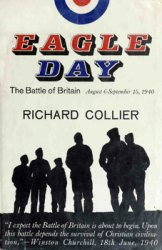Prochoros could hardly be regarded as an original thinker. What he actually did was to apply the Thomistic doctrine to the Palamite debates. The teaching of transcendentals played a particular role in his anti-Palamite views. A series of identifications that Prochoros did have followed from it: of essence and being, essence and energies, essence and potency, essence and wisdom, and essence and truth. These identifications led to his condemnation and were included in the Tomos of 1368. Provided that the transcendental of being is associated with essence, it follows that the concepts which unfold being in Aristotelian metaphysics are also identified with it - potency, act, and truth. Following the Scholastic method of distinctions, the identification of essence with being is reached in the way of distinguishing the various kinds of potency and act, and consequentially excluding those of them, which presuppose complete or partial nonidentity of the being of God with his essence. The Christian nuances of this view do not conceal the Aristotelian background. The teaching of Palamas, against which these arguments are aimed, is articulated in the language of Neoplatonic philosophy, connecting potency and act with the concept of emanation. This led him to a certain ambiguity as to the status of the Divine energies. In his doctrine they are both nonhypostatic and non-separated from the essence of God and on the other hand are Divine but not God Himself.
The Aristotelian basis of Kydones’ views (opposed to the Neoplatonism of Palamitic doctrine) was the reason for his views about the use of syllogism to be condemned, though at first glance they concurred with that of Palamas’. Unlike the other anti-Palamites, Prochoros allows for the application of syllogism in Theology. In the Tomos of 1368, four of his arguments, in favor of the use of syllogisms and proofs, are quoted. (1) Truth is inseparable from syllogism being either its principle or identical with it; (2 (connected with the first)) all true discourse is in syllogistic form; (3) rational knowledge is in harmony with Revelation; (4) in the present human state syllogism is the only available instrument for finding the truth. The Tomos does not analyze these statements, taking their heterodoxy for granted. This refers at least to 1, 2, and 4. Firstly, the principle of syllogism is according to Palamas not truth itself, but its manifestation - the energies that constitute the Divine intellect or Wisdom. On the contrary, according to Thomas the basis of syllogism and of any knowledge are transcendentals and truth is one of them. Secondly, the discourse in syllogistic form does not surpass the metaphor and the symbol. These are different ways to articulate in speech the experience of Divine energies; in the first case - their presence in nature and natural intellect, in the second - the touch of their transcendence. However the highest achievement of truth, according to Palamas (like in Neoplatonism), is not in the speech but rather in silence. This was an essential point in his theological substantiation of the monastic practice of hesychia.
The condemnation of Prochoros involved his brother Demetrios Kydones in the Palamite controversy and was among the factors of even more radical differentiation of conceptual patterns of eastern and western theology.
See also: > Demetrios Kydones > Gregory Palamas > Thomism, Byzantine




 World History
World History









